Games set in the Land of the Rising Sun are like sushi. At first glance, it may seem like just raw fish and rice, but in reality, it’s an art form, where behind the bright exterior lies madness, depth, and sometimes, "why do I even need this, but I can’t stop." Let’s explore the most memorable titles in Japanese style.
Ghost of Tsushima
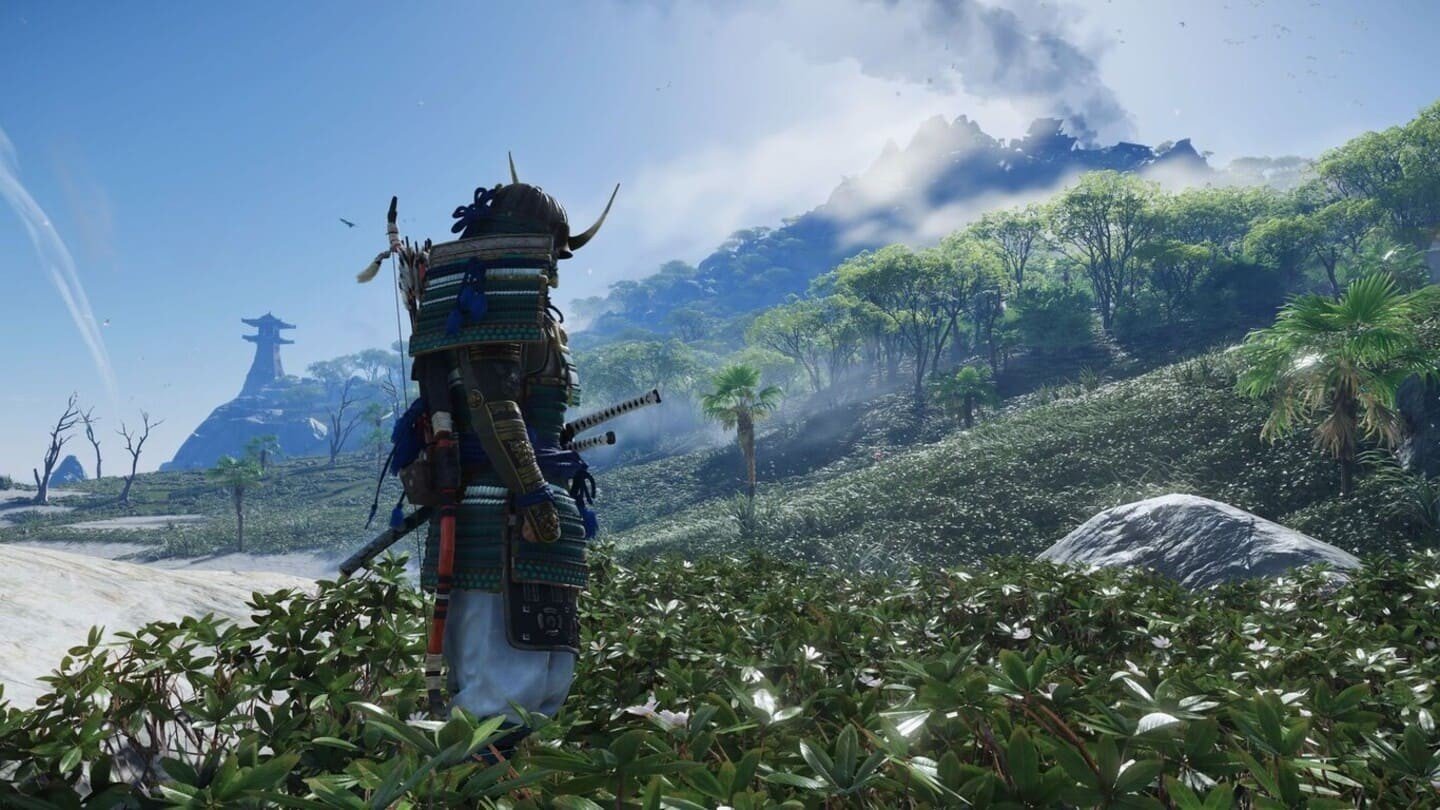 Image: vidaextra.com
Image: vidaextra.com
If you’ve ever dreamed of becoming the hero of a classic samurai film, where the wind bends the bamboo and blades glisten in the moonlight, Ghost of Tsushima will stay with you. Developers from Sucker Punch have created not just a beautiful action game but nearly an interactive anthem to Japanese culture.
The grass sways so intimately, almost poetically, that you might want to put your katana aside for a moment and simply meditate on the scenery (thanks to Nintendo for inspiring Sucker Punch with the animation of vegetation, as we saw something similar in The Legend of Zelda: Breath of the Wild and Tears of the Kingdom).
The only thing that might break the atmosphere is rare bugs, such as the game suddenly failing to register your actions in duels (Hold the button, player, no, don’t let go! Oh, everything’s ruined…). But even these little annoyances don’t spoil the experience of such a lively adventure.
Total War: Shogun 2
 Image: youtube.com
Image: youtube.com
A full-fledged and thoughtful journey into feudal Japan, where, beyond the battles, the branches of cherry blossoms gently sway, and the most attentive player says, "I believe it." Creative Assembly didn’t just make a good game. The developers carefully and thoroughly recreated the atmosphere of the Sengoku period.
Authenticity lies in the details—from the detailed armor of the samurai to the meditative music on the campaign map—everything is imbued with the spirit of Japan. And there are ninjas. Lots of ninjas. They sneak up, kill generals, sabotage castles, and generally act as if they’ve read too much manga.
And if, after all this, you feel like taking a break from conquests and simply admiring the sunset, Shogun 2 is understanding of such moments of contemplation. After all, even great daimyos (Japanese feudal lords) deserve a break and a moment of peace. Until their capital is captured by another cunning clan with a fleet you forgot about.
Nioh 2
 Image: alphacoders.com
Image: alphacoders.com
If Ghost of Tsushima is a poetic samurai film, Nioh 2 is associated with its brutal younger brother, who grew up on dark fantasy and complex RPGs. Team Ninja created a game where every victory comes through pain and dozens of deaths. But that was the intention, as the developers drew inspiration from the Dark Souls series.
The setting of Nioh 2 is a skillful mix of history and mythology. In one universe, real Sengoku period clans coexist with yokai (Japanese demons). Unlike the first game, now you play as your own character, who can be customized down to the smallest detail. Want to play as a noble samurai? No problem. Or desire to create a demonic berserker with horns? Go ahead.
The world of the game is dark, bloody, and detailed enough to captivate the eye of any visually inclined gamer. Ruined temples, fog-covered battlefields, and dungeons where every step needs careful calculation. For those who are not afraid of pain and prefer their landscapes a little darker, Nioh 2 will be a near favorite.
Sekiro: Shadows Die Twice
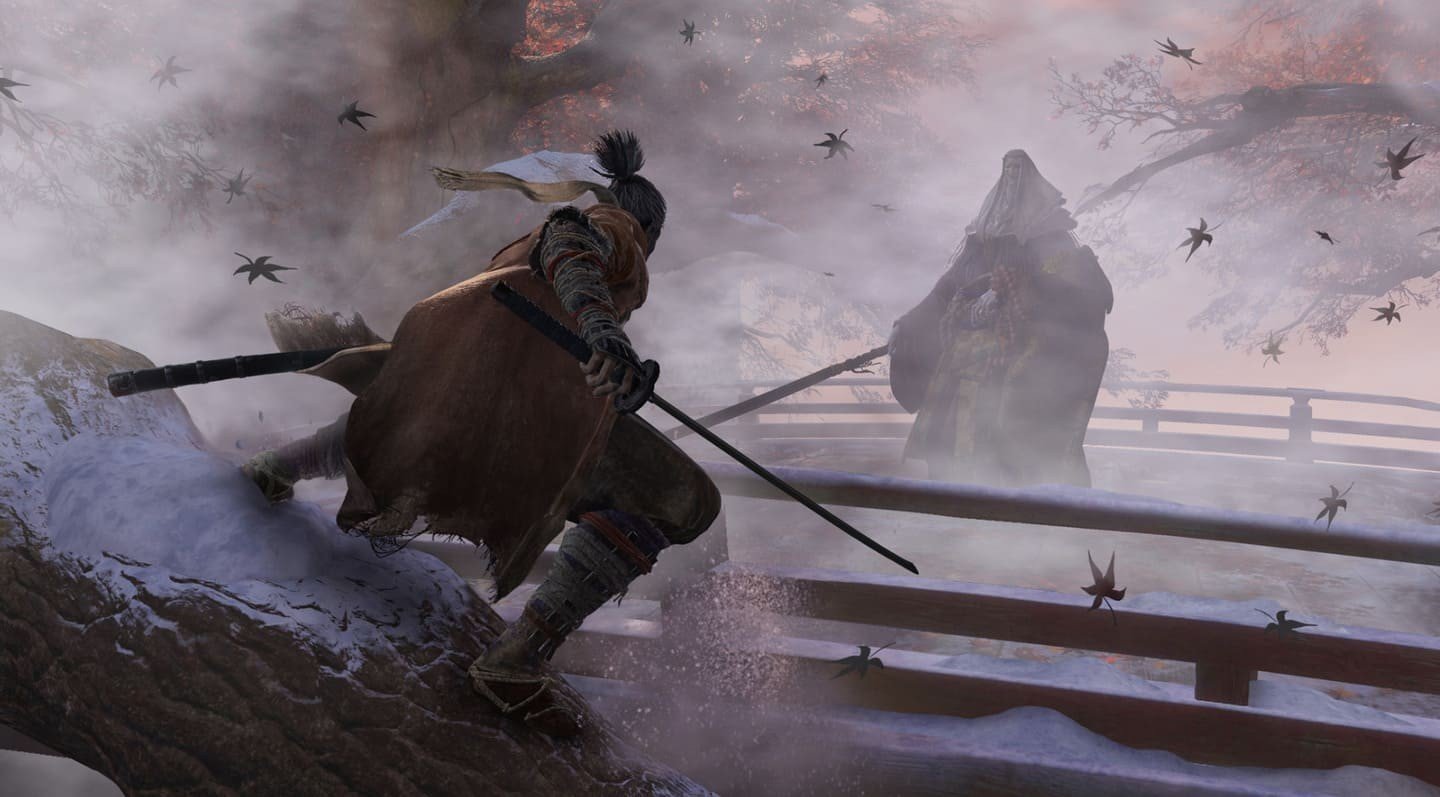 Image: well-played.com
Image: well-played.com
Sekiro: Shadows Die Twice is like a samurai sensei in the world of games, who will beat you with a bamboo stick until you learn how to fly. It won’t give you any discounts for your short gaming experience, and even if you have a lot of experience, the game will still put you in your place.
FromSoftware has never had issues with artistic expression, and this title only reaffirmed the developers’ expertise in that area. The setting takes place in an alternate version of Sengoku-era Japan. The main character is a one-armed Wolf—a shinobi with a grappling hook prosthetic and a personal tragedy in his past.
Gameplay-wise, Sekiro is not just difficult. It requires a shift in thinking. You won’t be able to call your friends for help or level up and return to old enemies. But once you understand the combat mechanics, the game reveals itself in a new light. Suffer in good health. And learn to parry.
Rise of the Ronin
 Image: gamingbolt.com
Image: gamingbolt.com
If we were to draw parallels between interactive entertainment and cinema, Sekiro: Shadows Die Twice could be positioned as a Hollywood blockbuster about samurai. In contrast, Rise of the Ronin is more of a historical drama with slow character development.
The game doesn’t rush to overwhelm you from the first minutes but offers a deep immersion for those willing to invest dozens of hours, dedicating themselves to the project a little longer than we’re used to. Rise of the Ronin doesn’t reveal everything immediately, but the most patient players will receive more than those eager for the credits to roll sooner.
The setting of the game takes place at the end of the Edo period (1863), a rather rare period for games, when samurai traditions collide with Western technology. You play as a ronin caught in the middle of a conflict between several factions. Gameplay-wise, it’s a mix of Nioh and Ghost of Tsushima, but with smaller budgets. However, the game makes up for it with historical accuracy—Yokohama and Edo are recreated with museum-like precision.
Like A Dragon: Ishin!
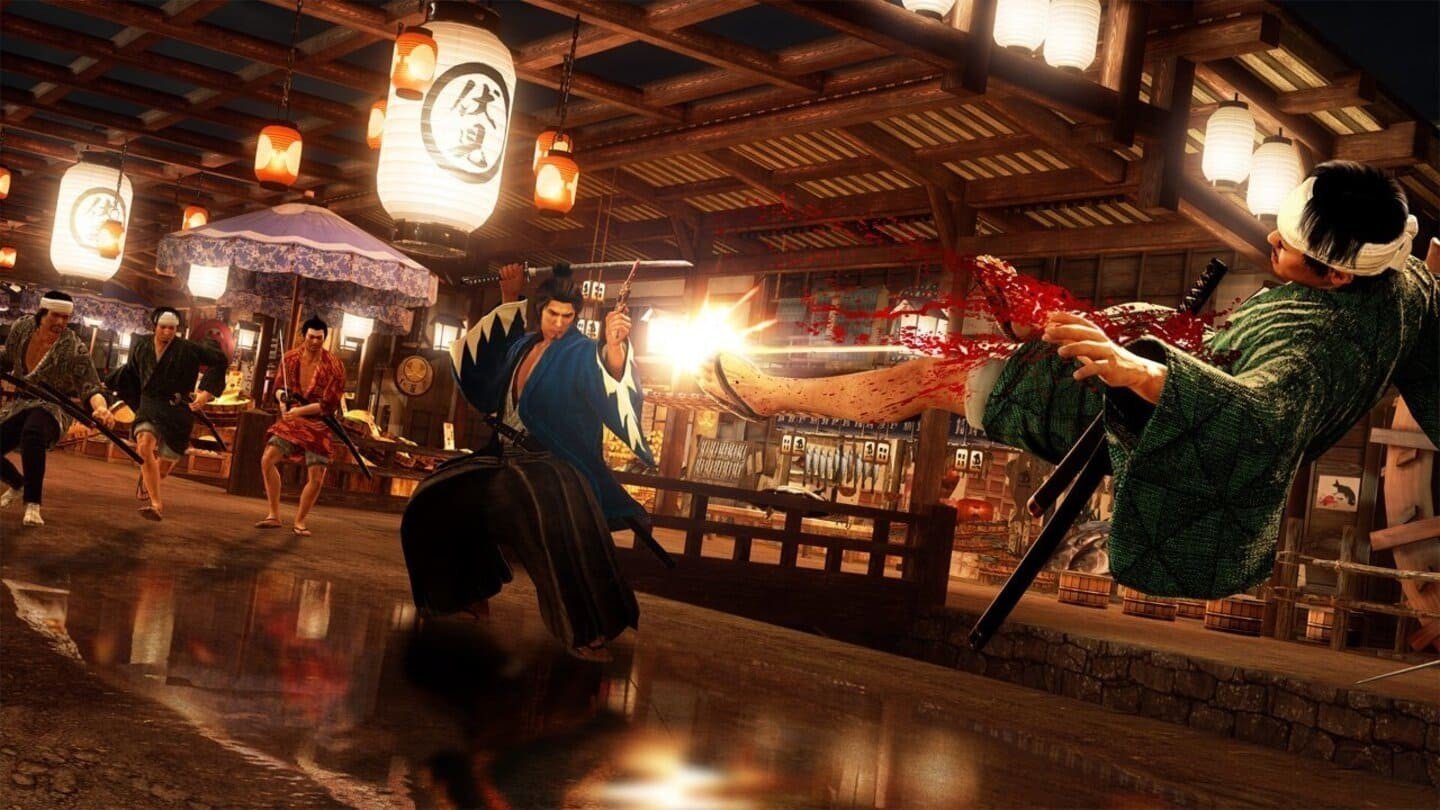 Image: gamingbolt.com
Image: gamingbolt.com
Like A Dragon: Ishin! is not just a 2014 remake but a full-fledged samurai spectacle in the best traditions of the series. It has bloody political intrigue, absurd side quests, and, of course, epic fights in the "one against twenty" style.
The story is set in the 1860s, during the fall of the shogunate and the bloody conflicts between reformers and traditionalists. The main character, Ryoma Sakamoto, is a samurai who embarks on a path of revenge while pretending to be someone else.
Unlike Kamurocho in the modern games of the series, here the old Kyoto is recreated with its narrow streets, teahouses, temples, and the red-light district of Gion. There’s plenty to see here.
Shadow Tactics: Blades of the Shogun
 Image: wingamestore.com
Image: wingamestore.com
A cozy Japan for those who don’t like to rush and are tired of fast-paced battles where success depends on the muscle memory of your fingers and instincts. If you’ve ever wanted to feel like a real ninja strategist, commanding a team of assassins from the shadows, then Shadow Tactics: Blades of the Shogun has something to surprise you with.
Shadow Tactics: Blades of the Shogun takes place at the beginning of the Edo period, when the Tokugawa shogunate was strengthening its power and gangs of ronin and secret clans roamed the country. You’ll lead a squad of five characters, each with their own unique skills.
Developers from Mimimi Games didn’t just make a nostalgic return to classics like Commandos and Desperados. They created a full-fledged, distinctive tactical action game that manages to be both complex and historically authentic in its representation of old Japan.
Judgment
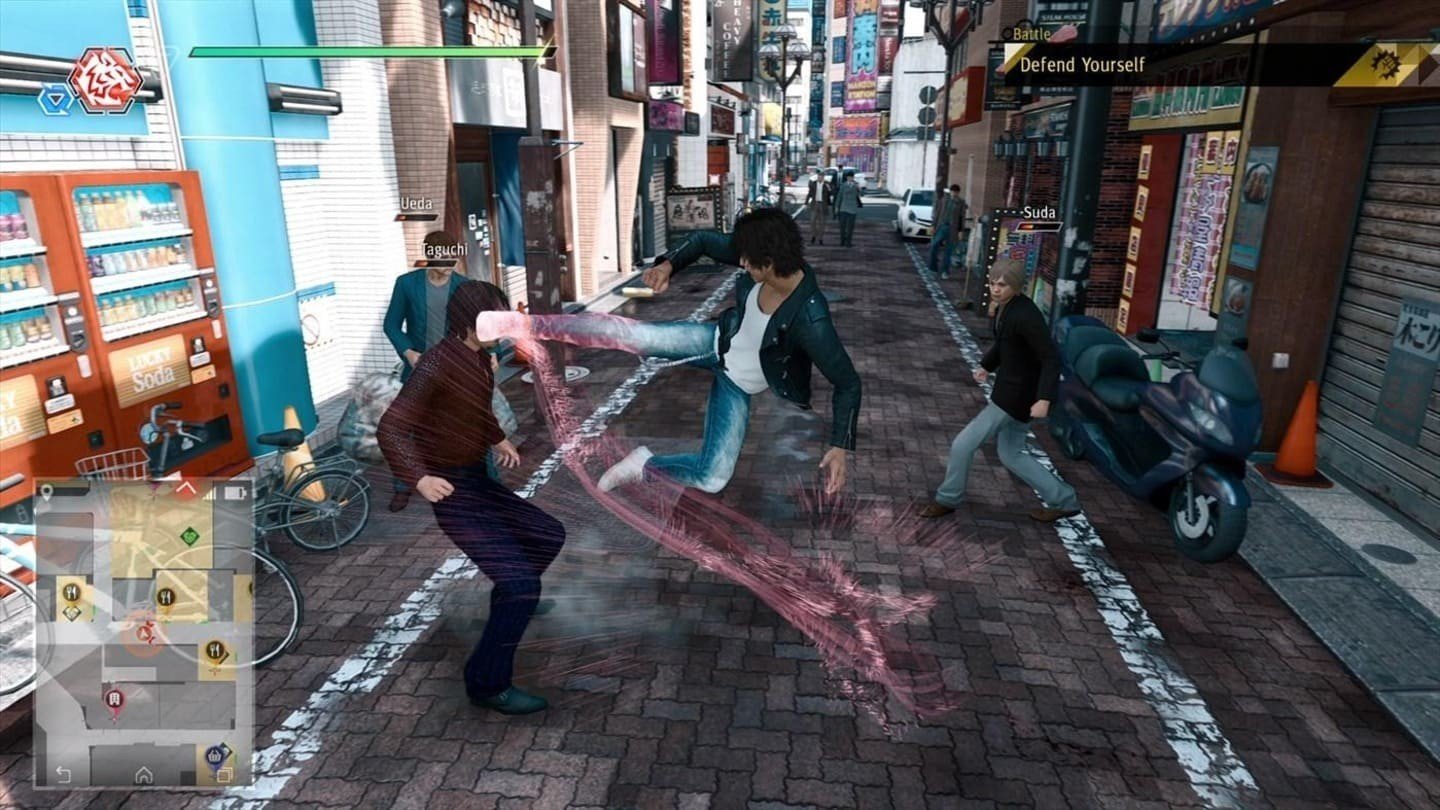 Image: thexboxhub.com
Image: thexboxhub.com
For those tired of medieval settings and craving something more modern, the industry offers Judgment. A criminal saga about the yakuza (Japan’s most famous mafia group) with action elements.
Developers from Ryu Ga Gotoku Studio created a game that blends detective elements, noir style, and the signature Tokyo atmosphere, where a murder investigation leads to a brawl in an alley beneath neon signs, and following someone becomes a rooftop chase.
The game takes place in Kamurocho, an area modeled after Tokyo's Kabukicho. The story starts as a classic detective tale but quickly transforms into an epic saga about revenge, corruption, and moral choices.
Yakuza: Like a Dragon
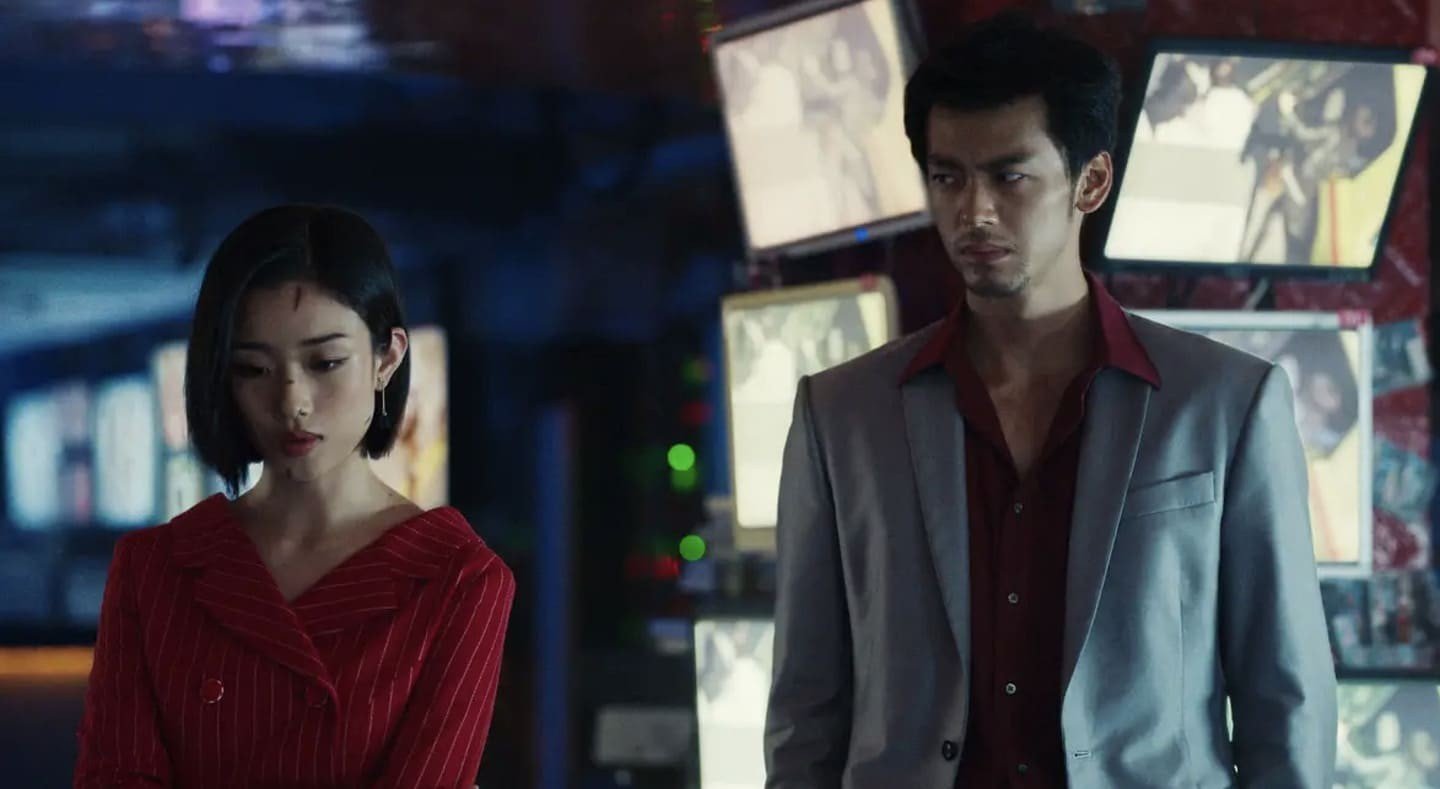 Image: dailyrecord.co.uk
Image: dailyrecord.co.uk
If the entire Yakuza series up until now was a crime action game with fist fights, then Like a Dragon is a sudden turn toward JRPG with a hint of "Pokémon". The story begins with classic revenge but later transforms into a touching drama about redemption, family (not just by blood), and faith in people.
At the same time, the game doesn’t lose the signature Yakuza humor. In one quest, the protagonist wants to help a man with a fetish for adult diapers. In another, someone wants to put a chicken on trial for espionage... Be prepared.
The virtual Yokohama is a real city of contrasts. Poor neighborhoods with underground casinos. Luxurious skyscrapers, where enemies wear suits worth 10 million yen, and lots and lots of mini-games. For example, go-karting on real street cars, karaoke with new crazy songs, and even running a business where you can become a real estate mogul.
Ghostwire: Tokyo
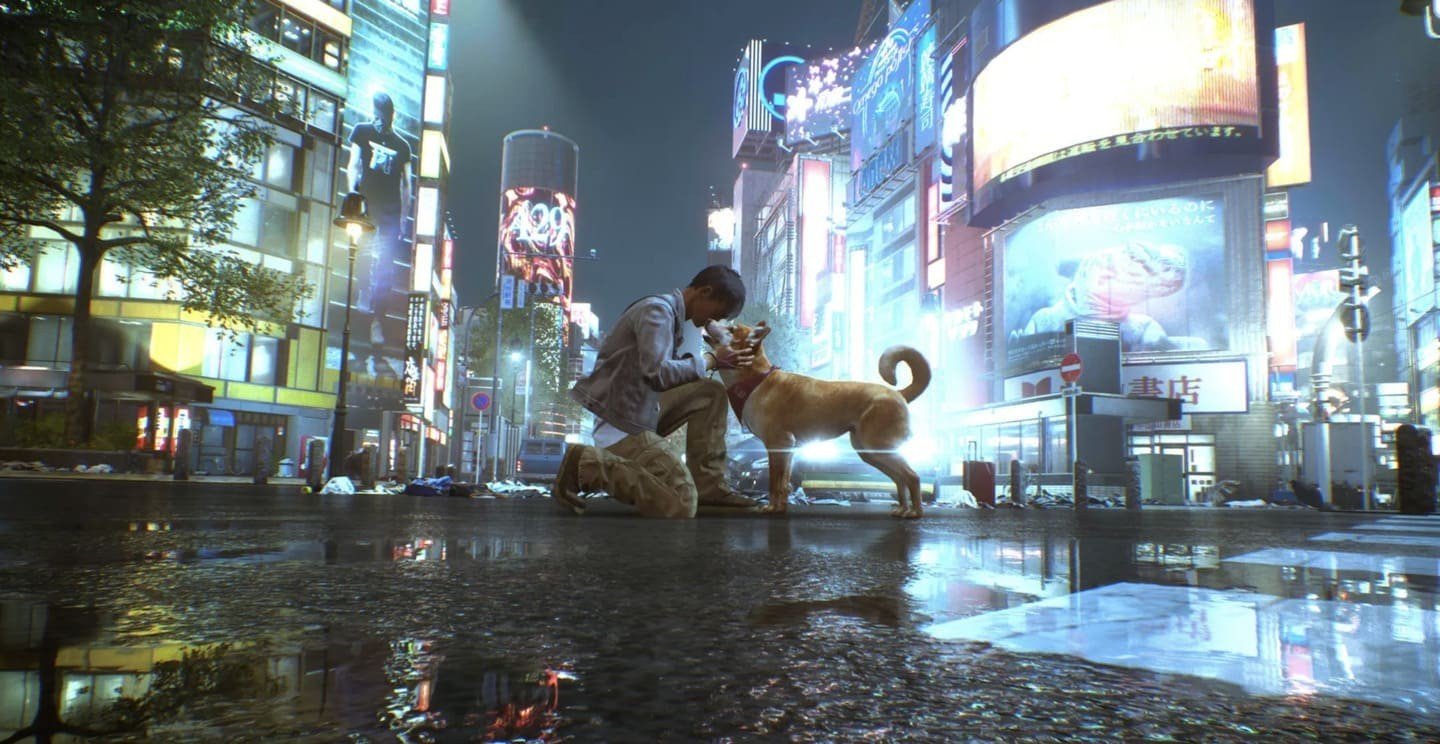 Image: gamingbolt.com
Image: gamingbolt.com
Tango Gameworks' project (the creators of The Evil Within) initially received mixed reviews, but after updates, it turned into a decent action-horror game with a unique and authentic atmosphere.
The story goes that Tokyo emptied in an instant—everyone disappeared, leaving only their clothes and phones behind. Instead, strange entities filled the streets. Specifically: Yūrei—ghosts with unfinished business (prepare to search for lost umbrellas and talk to shape-shifting cats), visionaries (demons in masks), and kitsune (spiritual foxes).
Modern Tokyo looks impressive. Neon flickers in the fog like it’s alive, rain reflects off the asphalt, and ghostly silhouettes flash in alleyways. A mystical capital of modern Japan in the spirit of Stephen King’s tales—if you like that, welcome!
If, after all these samurai battles, historical intrigues, and absurd quests with dancing ninjas, you suddenly feel like returning to the familiar world where instead of a katana, there’s a bicycle, and instead of a shogunate, there are yakuza in purple suits, you’ll have plenty to choose from. We hope you enjoyed our selection. Good luck on your adventures in virtual Japan!
Main image: ensigame.com

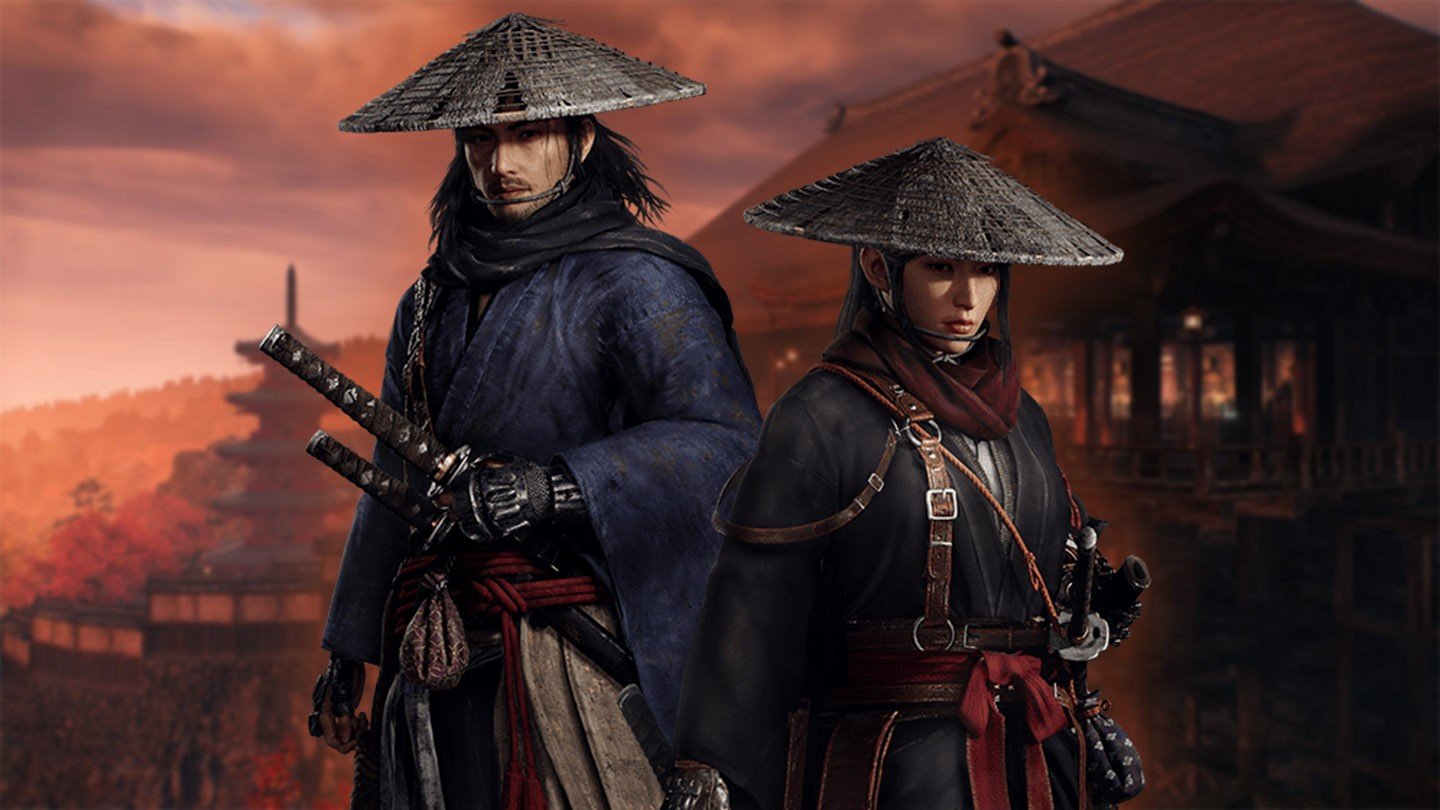
 Alexey "Alexi Emerald" Proschaylo
Alexey "Alexi Emerald" Proschaylo






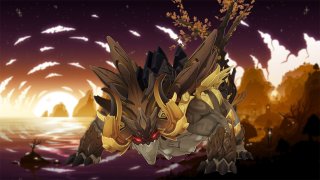











0 comments